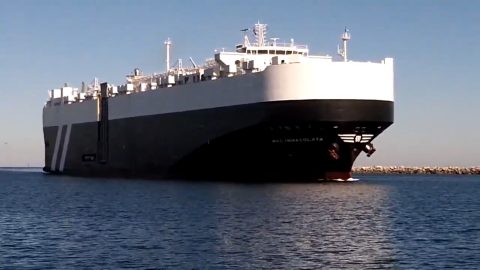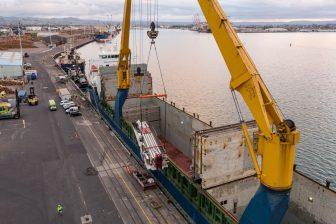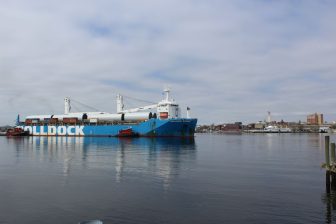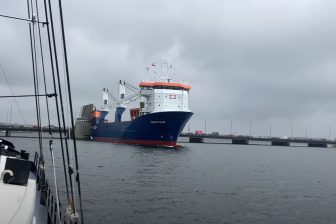
MSC pulls plug on West-African ro/ro service
MSC has pulled the plug on its ro/ro service between Le Havre, Antwerp and West-Africa, which began service in February last year. The company cites low freight rates and safety concerns as the main reasons to stop the service.
The ro/ro service commenced operations when the MSC Immacolata first set sail from Le Havre in February last year. MSC wanted to provide a link for rolling cargo, breakbulk and project cargo between France and Belgium and the West-African ports of Dakar, Conakry and Abidjan. But one year and three months later, MSC has decided to pull the plug as it was unable to make the shipping route profitable, reports Flows.
In an interview with the Antwerp-based port newspaper, commercial manager Alex van Pul says the decision is based on low freight rates and safety concerns. “On one hand the low freight rates have caused the business to be loss-making and we do not see that change within an acceptable period of time,” he says. “On the other hand there’s the stubborn habit to load the vehicles with all sorts of undeclared goods which pose risks to our crew, terminals and dock workers,” Van Pul adds.
The last vessel on the service will depart from Antwerp on the 2nd of July.
Grimaldi
MSC is not the first company to raise concerns about goods being stowed away in second-hand vehicles. In May this year, ro/ro vessel operator Grimaldi issued a public statement in which it called for more stringent regulations on car batteries and personal effects in second-hand vehicles after two of the company’s ships were hit by major fires. In one of those cases, the fire resulted in a total loss of the vessel as it sank in the Bay of Biscay.
Following “the umpteenth case of a fire that broke out on vehicles transported by cargo vessels”, Grimaldi Group launched an appeal to introduce more stringent rules on sea transport of both rolling units and containers.
“Notably, with reference to rolling freight, the Grimaldi Group requests that there be more controls on car batteries, which often cause short-circuits on board of vessels, as well as in port terminals. Moreover, it calls for the total prohibition of the presence of personal effects in second-hand vehicles, embarked on ro/ro vessels,” the company wrote.
You just read one of our premium articles free of charge
Register now to keep reading premium articles.




